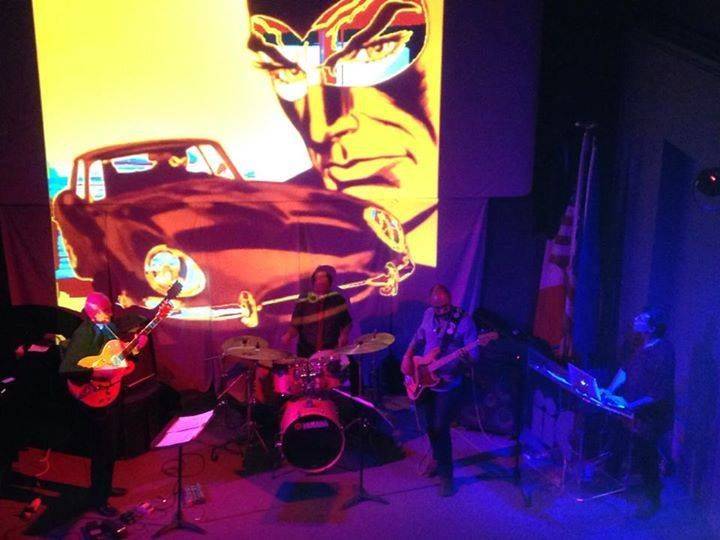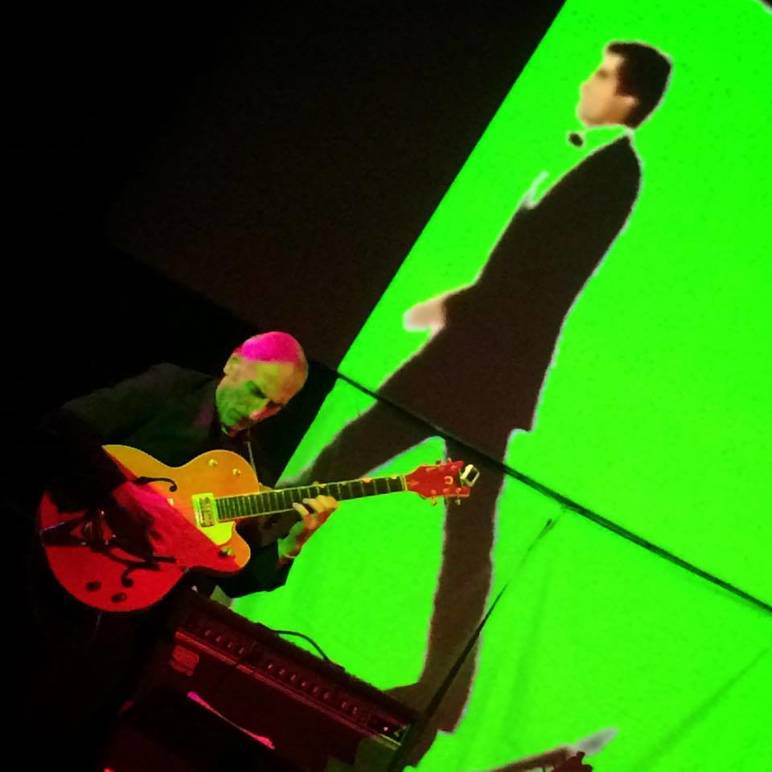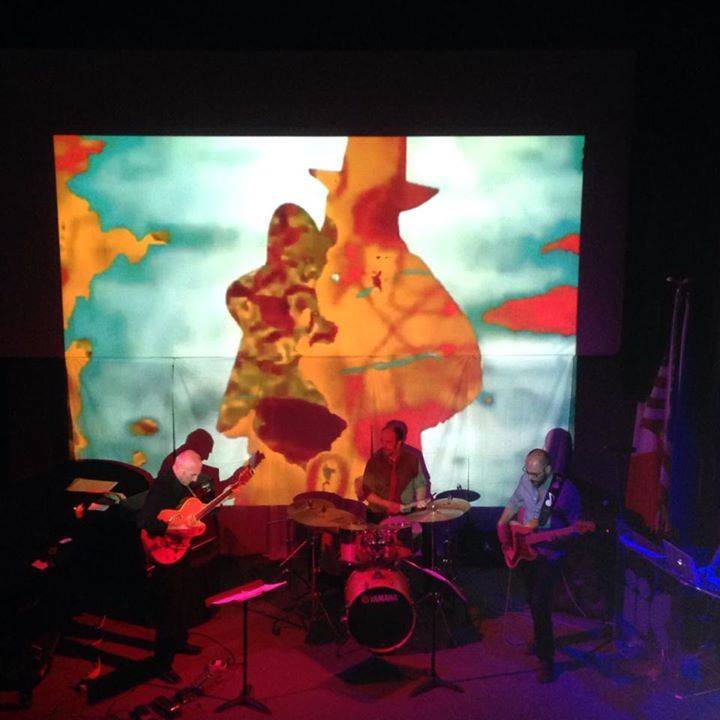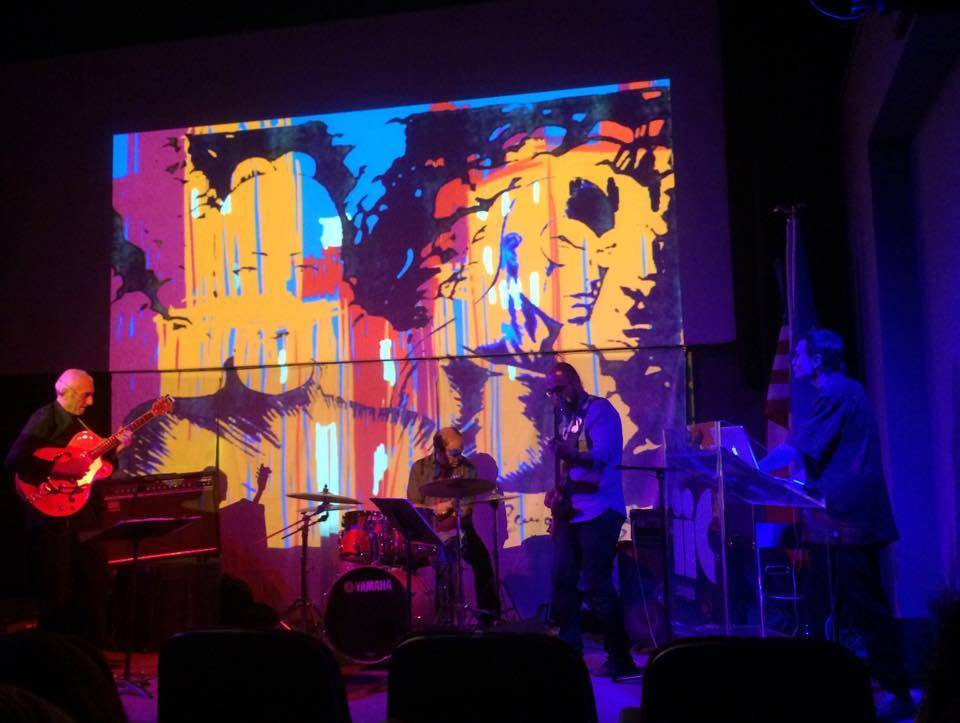Italian Surf Academy: Exploring & Reinventing the Sounds of the Italian B-Movies of the 1960
The Italian Surf Academy, founded in 2010 by Neapolitan guitarist Marco Cappelli, together with Luca Lo Bianco, bass, Francesco Cusa, drums and Andrea Pennisi, video art, is on the way back from a glorious tour that will end at Littlefield in Brooklyn (October 4th), after the band played in China, Japan and California.
The show is an “audio-visual journey” that will surely capture international audiences. Itexplores and reinvents the sound of the Italian b-movies of the1960s by reworking the music and the images of cult Spaghetti Western, Horror, Noir and Sci-fi films by the likes of directors like Sergio Leone and Mario Bava. Compositions by Morricone, Bacalov, Rustichelli, Ortolani, Umiliani, Trovajoli as well as by Bob Crewe and Glitterhouse, the label behind the music of the erotic parody “Barbarella,” directed by Roger Vadim, are revisited in perfect “downtown New York” style while recuperating the “Surf” soul of this extraordinary vintage repertoire.
The Italian Surf Academy came together while Marco Cappelli was teaching a master class in Palermo. The trio was invited to perform in New York and this gave them a chance to try their repertoire out in front of an audience. From the beginning, music fans have responded stupendously to their approach. Indeed the group's music makes audiences travel back in time to the golden years of Italian cinematography by reinterpreting familiar and popular sounds and sound tracks through an improvised filter that makes it all unpredictable.
We had a chance to ask Marco a few questions as the group prepares for the final show of this successful run.
How’s the tour going? Any surprises? Special moments?
Our concert at Littlefield in Brooklyn will be the last of 17 shows that we had in countries like China, Japan and California. The reaction of the audiences to our music has been extraordinary and each country we have visited had a unique response. Overall it was a great success and we've made lots of plans for the future. For example, we have been invited to return to Japan in 2015 and be part of a huge festival, while in China the University of Chongqing has invited us to participate to a series of master classes and concerts. Yet, one of the most significant experiences is the one we had at the 38th Annual Simon Rodia Watts Tower Jazz Festival in Los Angeles. We played for an amazing and demanding audience right below the majestic towers built, just like a cathedral in the middle of the desert, by the Italian artist. Inspired by the famous "Gigli di Nola,” and with the help of the kids living in that poor neighborhood, legendary Charles Mingus was among them, who were bringing Simon Rodia pieces of porcelain, tile, and glass, Rodia’s work is an example of outsider art, vernacular architecture and Italian-American naive art.
Today you can actually feel the history behind the construction of those towers, and indeed the Watts Tower Arts Center represents an extraordinary community that over a period of 33 years, from 1921 to 1954 has told its story, despite poverty and marginalization. Our group is made of people from Naples and Sicily, so at the last minute we decided to play an improvisation on a popular piece from Southern Italy, from the area of Nola, to be exact. The multi-ethnic audience understood we were paying homage to them and responded enthusiastically.
Considering you are just coming back from Japan, how does the audience's response change from place to place?
We have realized that this music awakens dormant memories in people from every corner of the planet, thus proving the popularity of this internationally important piece of Italian artistic history, where the concept of cross over between cultures comes naturally. In the States everybody knows this music, while in Japan we have been asked a lot of questions... and in China, where I think this repertoire is not so widely known, we have raised a lot of curiosity.
How did the group come to be and how did you decide to name yourself Italian Surf Academy?
Surf Music is an important popular music genre in American culture that is associated with surf culture and it identifies with its imagery. It was especially popular from 1961 to 1966, indeed 1960’s cinema, the cinema of spaghetti westerns for example, featured such sounds and music composed by great maestros such as Ennio Morricone and Luis Enriquez Bacalov. Our approach to soundtracks that were part of our childhoods has been creative and improvisational.
We brought them back to their original “surf sound,” where electric guitars, played through spring reverb and using the vibrato arm, were accompanied by bass and drums. We also work with a VJ who improvises with us as he projects images that go with it all. So basically this is it, ITALIAN SURF ACADEMY comes from all this.
How do you decide what to play?
Our gold mine is in the "western all'italiana" films of Sergio Leone and Sergio Corbucci. We are passionate about Quentin Tarantino, who has revived the genre with his recent remake of "Django". But that's not all: we've been inspired by the horrors of Mario Bava and his Diabolik (1969) that features the music of young Morricone and paves the way to an extraordinary series of lesser known music and films. Of course, we also pay homage to the surf guitar genre of Link Wray, Duane Eddy and the Ventures of the unforgettable "Secret Agent Man".
So the appointment with the Italian Surf Academy is for October 4th at Littlefield in Brooklyn. Their shos is preceded by a performance by Los Crema Paraiso, a sensational and powerful trio from Neil Ochoa (Si Se), José Luis Pardo (Los Amigos Invisibles) and Álvaro Benavides (Pedrito Martinez Group) that brings Venezuelan traditional music into jazz, rock, funk, electronica and exotic sounds from all over the world.








































i-Italy
Facebook
Google+
This work may not be reproduced, in whole or in part, without prior written permission.
Questo lavoro non può essere riprodotto, in tutto o in parte, senza permesso scritto.